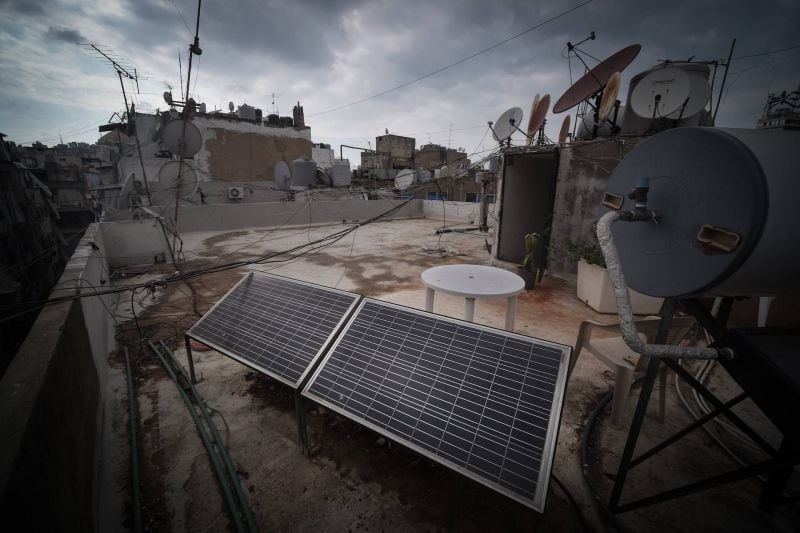
A rooftop in Beirut. (Credit: João Sousa/L'Orient Today/File photo)
A recent study led by atmospheric chemistry expert and MP Najat Aoun Saliba at the American University of Beirut reveals new data on air pollution in Beirut. The study, which will soon be published, confirmed the presence of carcinogenic substances in the air, due to emissions from diesel-powered generators.
Lebanon has been highly dependent on private generators for electricity since the onset of the economic crisis in 2019, with the state provider Électricité du Liban (EDL) reducing production to its lowest level. Saliba spoke to L'Orient-Le Jour about the study’s outcomes, implications, and the actions municipalities need to take.
Q- What makes this study different from previous ones?
A- This study, prepared by two of my students, focuses on measures taken in three areas in Beirut: Bliss Street near the AUB, Downtown Beirut and Makassed General Hospital Street. It ensures a follow-up of the measures taken in Beirut since 2010, and therefore provides a basis for comparison, particularly with 2017, the early stages of the crisis. We placed our machines in these three districts for a year and a half to cover as many emission times as possible to obtain meaningful results. As a reminder, the generators were used for an average of three hours a day in 2010, whereas they have been operating for almost 20 hours since the start of the crisis.
In this study, not only are we collected small particles, but we also carried out a chemical analysis of these particles’ components, in order to study the hydrocarbons from diesel.
Q- What are the main findings?
A- Pollution levels are alarming at all three sites, particularly in downtown where businesses require generators to run around the clock, and on the overcrowded Makassed Street. According to the World Health Organization (WHO), the annual average should not exceed five micrograms per cubic meter, and the daily average should not exceed 15 micrograms per cubic meter. However, the daily average calculated in Beirut can range from 20 to 25 micrograms per cubic meter near AUB, 20 to 30 in downtown, and up to 60 on Makassed Street. Pollution levels are not always this high, but peaks do occur regularly. The worst part is that the analysis of the materials emanating exclusively from the generators showed that their presence in the air has doubled since 2017.
Q- What repercussions can they have on people’s health?
A- These hydrocarbons from generator emissions are carcinogenic, but they also cause all kinds of respiratory illnesses and are critical to cardiovascular diseases.
Q- How can we protect ourselves from this pollution?
A- One might think that the only solution would be to improve EDL’s power supply, which is out of reach for ordinary citizens. However, the Environment Ministry issued a decision a few months ago [a circular dated Sept.1, 2023, after which Beirut Governor Marwan Abboud issued decision no 8547/2023] which stipulates that owners of large generators [up to 250-kilovolt amperes, KVA] are required to install filters that capture particles and soot. These are sophisticated filters, but generator owners must buy them to protect public health. Any resident can now contact the municipality and governor, and demand, based on this decision and our study, that [generator owners] take this measure. This is already happening in some neighborhoods.
This article was originally published in French in L'Orient-Le Jour. Translation by Joelle El Khoury.
